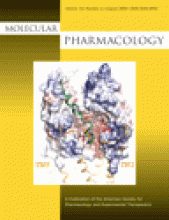Abstract
Doxorubicin efficacy in cancer therapy is hampered by the dose-dependent side effects, which may be overcome by reducing the drug's dose and increasing its efficacy. In the present work, we suggest that the activation of the nuclear factor-κB (NF-κB) pathway and of nitric-oxide (NO) synthase increases the doxorubicin efficacy in human colon cancer HT29 cells. To induce NF-κB, we took into account the effect of doxorubicin itself and of the 3-hydroxy-3-methylglutaryl coenzyme A reductase inhibitor simvastatin; as NF-κB inhibitors, we chose the sesquiterpene lactones parthenolide and artemisinin. Simvastatin increased the NF-κB activity and NO synthesis, elicited the tyrosine nitration of the multidrug resistance-related protein 3, and enhanced the doxorubicin intracellular accumulation and cytotoxicity. Simvastatin potentiated the effect of doxorubicin on the NF-κB pathway and the inducible NO synthase expression. The effects of simvastatin were due to the inhibition of the small G-protein RhoA and of its effector Rho kinase. Parthenolide and artemisinin prevented all of the statin effects by inducing RhoA/Rho kinase activation. On the other hand, they did not reduce the NF-κB translocation and doxorubicin intracellular content when RhoA was silenced by small interfering RNA (siRNA). It is interesting that RhoA siRNA was sufficient to increase NF-κB translocation, NO synthase activity, doxorubicin accumulation, and cytotoxicity also in non-stimulated cells. Our results suggest that artemisinin, a widely used antimalarial drug, may impair the response to doxorubicin in colon cancer cells; on the contrary, simvastatin and RhoA siRNA may represent future therapeutic approaches to improve doxorubicin efficacy, reducing the risk of doxorubicin-dependent adverse effects.
Footnotes
-
This work was supported with grants from Fondazione Internazionale Ricerche Medicina Sperimentale, Compagnia di San Paolo, Regione Piemonte (Ricerca Sanitaria Finalizzata CIPE A201 2004/2005 e 2006), and Ministero dell'Università e della Ricerca.
-
Sophie Doublier is recipient of a Research Fellowship funded by the Fondazione Internazionale Ricerche Medicina Sperimentale, Torino, Italy.
-
C.R. and S.D. contributed equally to this work..
-
ABBREVIATIONS: NF-κB, nuclear factor-κB; IκB, inhibitor of κB; IKK, IκB kinase; NOS, nitric-oxide synthase; PgP, P-glycoprotein; MRP3, multidrug resistance-related protein 3; siRNA, small interfering RNA; iNOS, inducible nitric-oxide synthase; eNOS, endothelial nitric-oxide synthase; FBS, fetal bovine serum; EMSA, electrophoretic mobility shift assay; PBS, phosphate-buffered saline; BSA, bovine serum albumin; LDH, lactate dehydrogenase; PI, propidium iodide; FITC, fluorescein isothiocyanate; TNF-α, tumor necrosis factor-α; GAPDH, glyceraldehyde-3-phosphate dehydrogenase; FACS, fluorescence-activated cell sorting; MG132, N-benzoyloxycarbonyl (Z)-Leu-Leu-leucinal.
-
↵
 S The online version of this article (available at http://molpharm.aspetjournals.org) contains supplemental material.
S The online version of this article (available at http://molpharm.aspetjournals.org) contains supplemental material. - Received January 14, 2008.
- Accepted May 5, 2008.
- The American Society for Pharmacology and Experimental Therapeutics
MolPharm articles become freely available 12 months after publication, and remain freely available for 5 years.Non-open access articles that fall outside this five year window are available only to institutional subscribers and current ASPET members, or through the article purchase feature at the bottom of the page.
|







